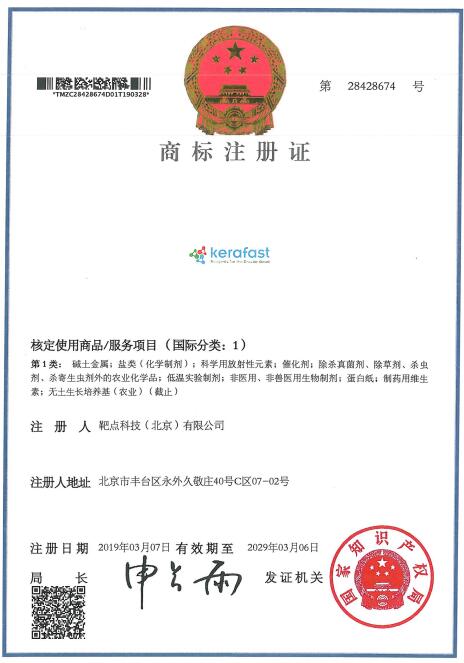This mouse monoclonal antibody was generated against a ΦX174 bacteriophage-derived synthetic DNA–RNA antigen and recognizes RNA-DNA hybrids of various lengths.
Highlights:
-
Useful in the detection of R-loops
-
High specificity and affinity for DNA-RNA hybrids
-
Does NOT cross-react with single-stranded DNA or double-stranded DNA
-
Minor cross-reaction (~5-fold less) has been observed for AU-rich double-stranded RNA.
-
High affinity binding shown for hybrids of 8, 10, 15, and 23 base pairs in length
Product Type:
Antibody
Name:
Anti-DNA-RNA Hybrid [S9.6]
Antigen:
S9.6 ΦX174 bacteriophage-derived synthetic DNA–RNA antigen
Isotype:
Rabbit IgG
Fusion Tag(s):
Mouse Fab version contains His-tag
Clone Name:
S9.6
Reactivity:
High specificity and affinity for DNA/RNA hybrids and other A-form nucleic acid hybrids
Immunogen:
ΦX174 bacteriophage-derived synthetic DNA/RNA
Purification Method:
Protein A/G
Buffer:
ENHOO1: PBS, 0.05% (w/v) Sodium Azide
Ab01137- : PBS with 0.02% Proclin 300
Tested Applications:
Dot Blot Analysis: 0.2 µg/mL.
Affinity Binding Assay: Clone S9.6 bound the DNA-RNA heteropolymer and poly(I)-poly(dC) equally, but 100-fold higher levels of poly(A)-poly(dT) were required to achieve a similar degree of binding. Single-stranded DNA, double-stranded DNA and RNA, and ribosomal RNA were not bound by clone S9.6 (Boguslawski, S.J., et al. (1986). J. Immunol Methods. 89(1):123-130).
Chromatin Immunoprecipitation (ChIP) Analysis: A representative lot detected increased DNA RNA hybrids at four actively transcribed genes upon shRNA-mediated knockdown of BRCA1 or BRCA2, but not PCID2 or RAD51 in HeLa cells (Bhatia, V., et al. (2014). Nature. 511(7509):362-365).
Chromatin Immunoprecipitation (ChIP) Analysis: A representative lot detected R-loops formed over beta-actin gene using HeLa chromatin preparation. RNase H treatment of the chromatin preparation prevented clone S9.6 from immunoprecipitating target chromatin fragments (Skourti-Stathaki, K., et al. (2011). Mol. Cell. 42(6):794-805).
Chromatin Immunoprecipitation-sequencing (ChIP-seq) Analysis: A representative lot detected genome-wide distribution of DNA-RNA hybrids in budding yeast by ChIP-seq analysis (El Hage, A., et al. (2014). PLoS Genet. 10(10):e1004716).
Immunocytochemistry Analysis: Representative lots immunolocalized nuclear R loops by fluorescent immunocytochemistry staining of methanol-fixed H1 human embryonic stem cells (hESCs) and formaldehyde-fixed HeLa cells (Bhatia, V., et al. (2014). Nature. 511(7509):362-365; Ginno, P.A., et al. (2012). Mol. Cell. 45(6):814-825).
Immunoprecipitation Analysis: A representative lot immunoprecipitated in vitro transcribed R-loop substrate (DNA-RNA hybrid), but not doouble-stranded DNA (dsDNA) (Ginno, P.A., et al. (2012). Mol. Cell. 45(6):814-825).
See also: S9.6 Publications by Application
产品链接:http://kerafast.com.cn/index.php?id=1877
This mouse monoclonal antibody was generated against a ΦX174 bacteriophage-derived synthetic DNA–RNA antigen and recognizes RNA-DNA hybrids of various lengths.
Highlights:
- Useful in the detection of R-loops
- High specificity and affinity for DNA-RNA hybrids
- Does NOT cross-react with single-stranded DNA or double-stranded DNA
- Minor cross-reaction (~5-fold less) has been observed for AU-rich double-stranded RNA.
- High affinity binding shown for hybrids of 8, 10, 15, and 23 base pairs in length
|
Product Type: |
Antibody |
| Name: | Anti-DNA-RNA Hybrid [S9.6] |
| Antigen: | S9.6 ΦX174 bacteriophage-derived synthetic DNA–RNA antigen |
| Isotype: | Rabbit IgG |
| Fusion Tag(s): | Mouse Fab version contains His-tag |
| Clone Name: | S9.6 |
| Reactivity: | High specificity and affinity for DNA/RNA hybrids and other A-form nucleic acid hybrids |
| Immunogen: | ΦX174 bacteriophage-derived synthetic DNA/RNA |
| Purification Method: | Protein A/G |
| Buffer: |
ENHOO1: PBS, 0.05% (w/v) Sodium Azide Ab01137- : PBS with 0.02% Proclin 300 |
| Tested Applications: |
Dot Blot Analysis: 0.2 µg/mL. |
 会员登录
会员登录.getTime()%>)
 购物车()
购物车()


 成功收藏产品
成功收藏产品
